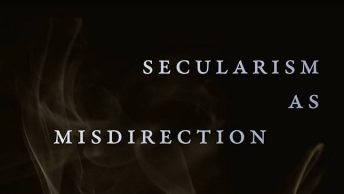1. Gautam Patel’s moving obituary on Atul Setalvad is worth reading.
2. On Bar Exams – If the Bar Council is going to regulate entry into the profession using a separate bar exam, shouldn’t it get out of the business of regulating legal education? Does any one know if law schools are demanding autonomy as their fair share in the bargain?
Update: A reader says ‘KN Chandrashekharan Pillai and NS Soman of CUSAT School of Legal Studies have argued for precisely this in a recent article in the “Kerala High Court Cases”. I am sorry I cannot provide the citation as I don’t have access to this journal right now.’ Does anyone else have a scan/soft copy they can share?
3. Disability – In an apparently regressive judgment in Dalco Engineering v Padhye (March 2010), Justice Raveendran of the Supreme Court has held that the non-discrimination obligations under the Persons with Disabilities Act apply only to the State, and not to the private sector. The judgment fails to appreciate global trends where most democracies prohibit discrimination on the ground of disability in public as well as private sector. The case turned on the interpretation of section 2(k), which reads thus:
“establishment” means a corporation established by or under a Central, Provincial or State Act, or an authority or a body owned or controlled or aided by the Government or a local authority or a Government company as defined in section 617 of the Companies Act 1956 (1 of 1956) and includes Departments of a Government;”
Interpreting this clause, the SC held that a company registered under the Companies Act is not ‘a corporation established by or under a Central … Act’. In light of precedents cited in the case, this appears to be an inescapable conclusion. Was it time to revisit those precedents? Or is it best to leave this for Parliament to clarify?






Re: Atul Setalvad, Dilip D'Souza has written about how Setalvad valiantly fought the case for prosecution of Bal Thackeray here
http://dcubed.blogspot.com/2010/07/atul-setalvad.html
Re: point 2 – KN Chandrashekharan Pillai and NS Soman of CUSAT School of Legal Studies have argued for precisely this in a recent article in the "Kerala High Court Cases". I am sorry I cannot provide the citation as I don't have access to this journal right now.
I don't believe it is fair to describe the judgment as "apparently regressive". While most democracies may prohibit discrimination across the board, it is difficult to see how the Supreme Court can mirror that result. As for "revisiting precedent", the post has in mind presumably the decision in Dhanoa's case. But even assuming the court should have doubted that line of cases (which is not certain), the result would not have changed. S. 2(k), which is quoted in the post, mentions a corporation created by or under statute, and separately mentions a Government company under s. 617 of the Companies Act – indicating that a company created under the Companies Act cannot possibly qualify under the first part of the definition. In fact, I believe that the judgment is a good example of careful analysis of statute – since the words "under an Act" suggest at first sight that companies created "under" the Companies Act are covered as well.
lawyer – i think you are right. i regret the result, but it seems that was the only legitimate result the judge could have reached. (although if there was no binding precedent, i am not sure this would still be the only legitimate result – in that case, the language of the statute admitted to more than one interpretation, and the more 'progressive' interpretation should have been chosen.)
in any case, i hope parliament acts to amend the law and prohibit private employers from discriminating on the grounds of disability. in fact, just saw the proposed amendments to the disability act which do not appear to propose to change the definition of 'establishment'. i will try to do a separate post on these proposed amendments soon.
@ Mr. Khaitan, I hate to belabor the first point, for I agree with your second. But I believe that careful analysis of statute is particularly important for "definition" sections of legislations, and I am not sure the statute admits of more than one plausible or reasonable reading. Since it is a settled principle that words in a statute are presumed not to have been used superfluously, each word must be given meaning. If the meaning the petitioners canvassed for is assigned to s. 2(k), it implies that not a word but an entire sentence – Government companies under s. 617 of the Companies Act – is unnecessary and serves no purpose. A similar interpretive approach is available (in another context) in Calcutta Gas Co. v. State of West Bengal and Tika Ramji v. State of UP.
please don't hesitate to belabour any point – the point of the blog is to put out ideas publicly for them to be challenged. the insights from our readers are always welcome, and i, for one, have often found them instructive.
on the substantive note, to my mind, section 2(k) is of the following form:
A = b, c, or d.
it is the interpretation of 'b' that the case turns on. in its literal sense (i.e. outside of its context) 'b' seems to suggests a broad interpretation (i hope you will agree that if it was not followed by c or d, 'corporation established by or under a law' is pretty broad. to be doubly sure i checked s 3(1) of the companies act, which makes it abundantly clear that a company is not merely 'registered' under the act, but also 'formed' under it – the latter, i take it, is synonymous with 'established'. the court in the judgment makes much of the meaning of 'established', but i think it gets this wrong).
so, the real question is the import of the presence of 'c' and 'd' on the meaning of 'b'. here, as you rightly suggest, one rule of statutory interpretation often employed by courts is that parliament does not use words superfluously. so, the mere existence of 'c' and 'd' suggest that 'b' did not include them to begin with – i.e. it often requires a narrow interpretation of 'b'.
but surely, there is another way of interpretation, often found in cases. although i cannot think of an authority off the top of my head (i suspect it should be easy enough to find), courts have often held that 'c' and 'd' have been mentioned by way of abundant caution, to make sure that courts don't exclude them from the ambit of the statute.
in the absence of binding precedent, the court has to make these decisions on the basis of various contextual facts and normative principles (we are all familiar with heated debates among jurists over what these relevant criteria might be). all i am suggesting, therefore, is this: surely it is 'plausible' that 'b' be given a wide rather than a narrow interpretation (without discounting the alternative possibility)?
perhaps one could perhaps make an even stronger claim that when more than one interpretation is plausible, the court must adopt an interpretation which furthers constitutional objectives outlined in part 3 and 4.